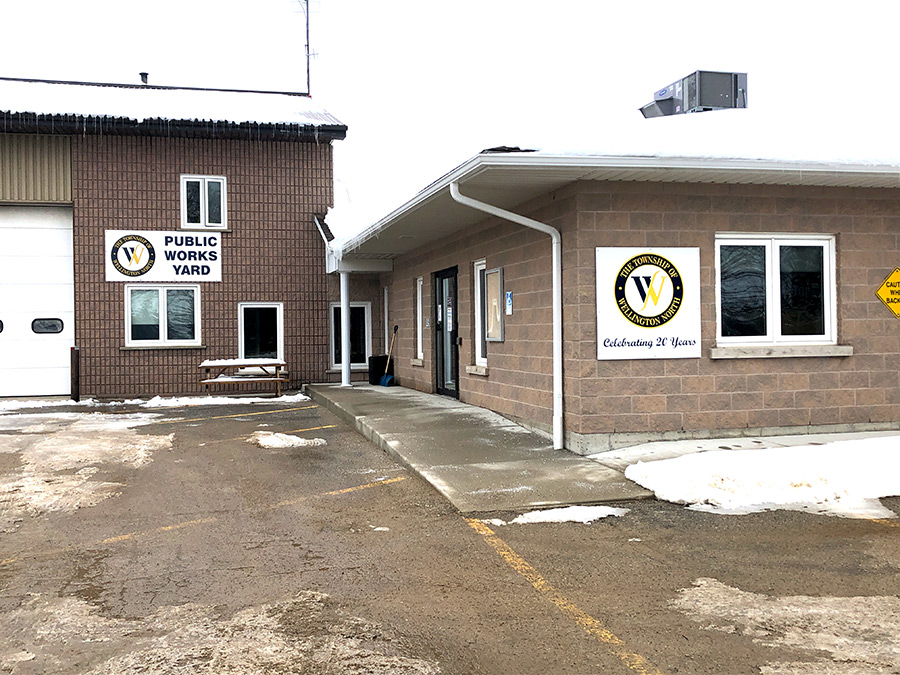WELLINGTON NORTH – Next year’s insurance premium has left councillors here with “sticker shock.”
Andrew Coburn of Coburn Insurance Brokers pitched the proposed 2023-24 insurance policy from Intact Public Entity, which the township switched to last year after a market valuation.
The premium is up by 22 per cent year-over-year from $265,738 this year to $324,782 next year.
“This may come as a bit of a sticker shock,” Coburn said when presenting the proposal.
The increase, Coburn rationalized, was not strictly due to rate, but largely because of inflation and what’s being added to the municipality’s coverage.
The township switched its insurer from Marsh and Mclennan to Intact last year, largely based on Coburn’s recommendation that Intact provided value-added services that Marsh and Mclennan did not for about the same premium.
Among other services, Intact completed an asset valuation and found the township had under-insured some buildings by $1 to $5 million.
There are also 22 smaller buildings, such as driving sheds, which were not inspected. Intact took those 22 buildings and tacked on 11% inflation for their supposed value.
And there were some buildings not covered by insurance at all that were added.
The Intact valuation added $17.67 million to the value of buildings being insured, increasing the property coverage premium from $57,960 to $85,591 year-over-year, insuring almost $80 million in total property value.
“That’s the primary driving factor behind the difference in premium this year,” Coburn said.
The broker explained property insurance rates have increased for 19 consecutive quarters, with more property losses around the globe “due to climate change” and the rising cost of the claims because of construction materials and labour costs, trickling to what a small municipality such as Wellington North pays for coverage.
Coburn also blamed the loss of buying power that the dollar has (inflation), which requires more money to be spent to get the same service. Coburn pegged inflation at 7%.
He noted that without the devaluation of money, the premium almost wouldn’t rise at all.
Pitching the cost to council, Corburn said removing the cost of inflation and property, the rate is “actually extremely minimal.”
More people, more liability
Also affecting the premium are liability and cyber insurance.
Class action lawsuits are increasing, according to Coburn, and insurers aren’t interested in underwriting casualty insurance policies due to “joint and several liability,” a principal of law meaning a municipality can end up having to make significant payments in liability lawsuits, even if found minimally liable, simply because municipalities have a tax base to squeeze for cash.
A tighter market and costlier payouts means the policies that are underwritten are expensive.
Population census data from 2016 and 2021 also factors into the premium.
The population has risen by 1,013 residents, from 11,477 in 2019-20 to 12,490 in 2021-22, according to data presented by Coburn.
“This increases exposure with regards to people … walking on sidewalks, using our services, roadways — it just increases the exposure which just increases the liability,” Coburn said.
The cyber insurance rate has risen by 53%, from $9,000 this year to $13,8000 next year.
“There is no variable factors driving that premium increase, it’s just pure rate,” Coburn said.
Cyber has not been profitable for insurers, Coburn said, explaining few are willing to offer policies.
“Until it becomes profitable and insurers can stabilize [the market], we’re experience very high rates put on renewals,” he said, adding cyber insurance is expected to double, at minimum, each year.
‘Hard’ market
Baseline premiums aren’t expected to get any more palatable in the future either, as the market remains “hard” — meaning fewer new customers are being taken on and fewer policies are being underwritten.
Municipalities also have a lot of exposure to risk, such as with lawsuits, making them unattractive to the insurance industry.
“This has been consistent messaging now for the third year in a row,” Coburn told council.
Overall, the township has polices protecting liability, property and machinery breakdown, auto insurance, crime, cybers and facility uses.
Council discussion
“The sticker shock is … I’m speechless, I don’t have any words for it,” councillor Sherry Burke said, reacting to the proposal.
Burke suggested a decision on accepting the premium be deferred until staff could finesse what buildings are included in the coverage.
Township finance director Farhad Hossain said, “There is some opportunity to make some strategic decisions,” indicating that property not worth insuring could be removed from coverage.
Hossain said the township is paying higher premiums compared to neighbouring municipalities, but Coburn said they can’t be compared because of the building value now being considered following the Intact valuation.
Coburn was also skeptical about how much of a difference would be made in reducing the premium.
Mayor Andy Lennox suggested deferring a decision until the new year, but CAO Brooke Lambert and clerk Karren Wallace advised the insurance proposal be accepted with advice to staff to examine options to reduce the increase.
Council took the advice, voting to accept the recommendation.
A report will return to council in the new year on what can be trimmed or adjusted to reduce the premium.




